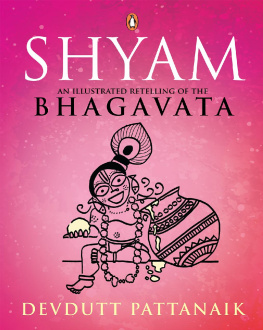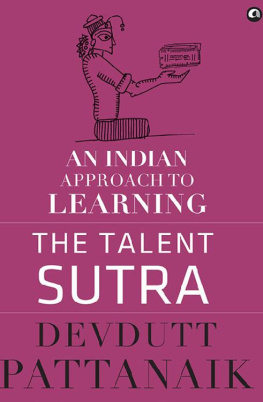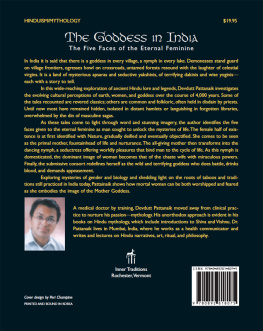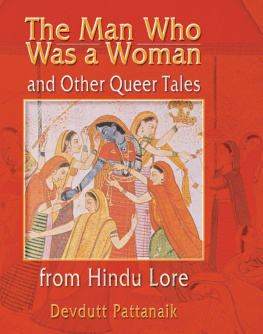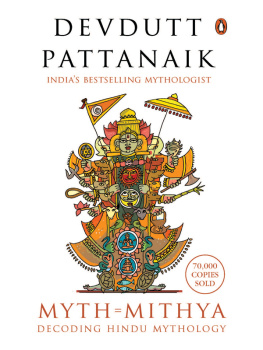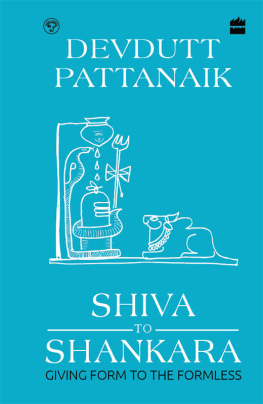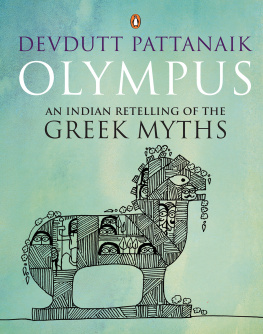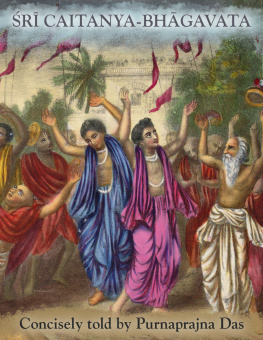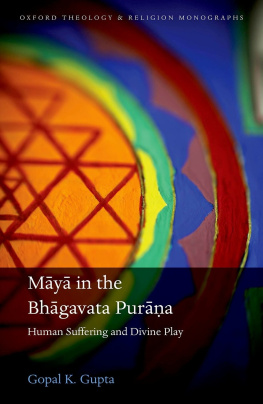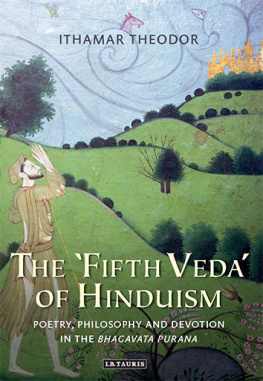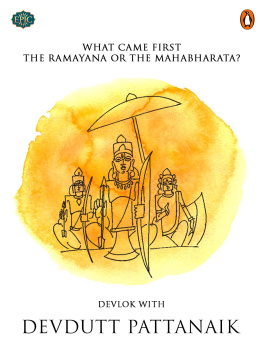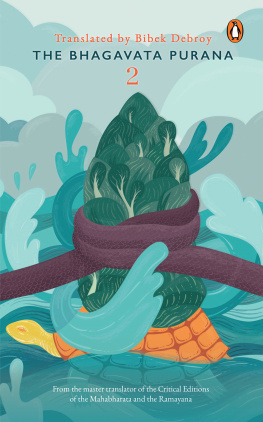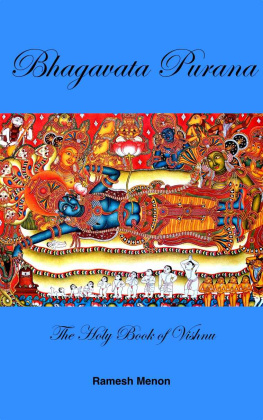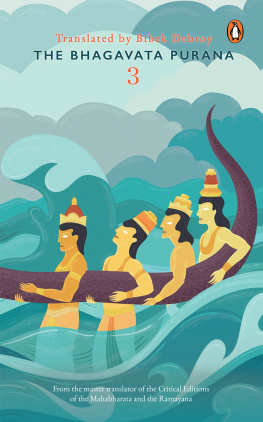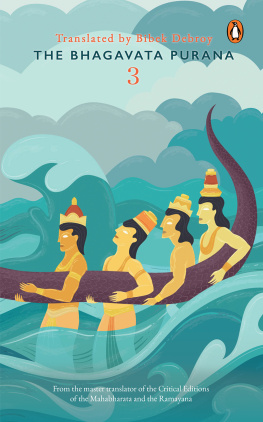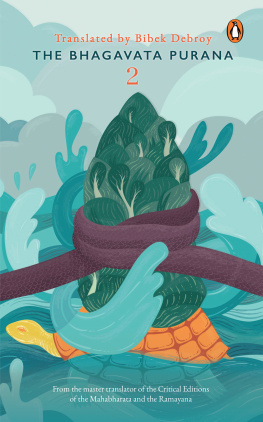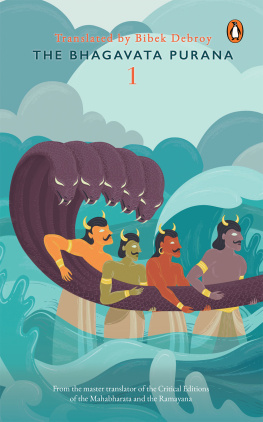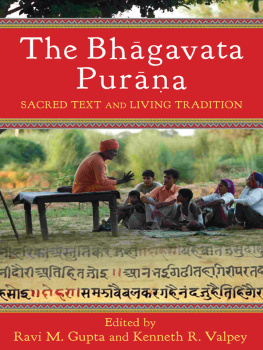DEVDUTT PATTANAIK
SHYAM
An Illustrated Retelling of the Bhagavata
Illustrations by the author
Contents
By the Same Author
Myth=Mithya: Decoding Hindu Mythology
The Book of Ram
The Pregnant King
Jaya: An Illustrated Retelling of the Mahabharata
Sita: An Illustrated Retelling of the Ramayana
Shikhandi and Other Queer Tales They Dont Tell You
Jaya Colouring Book
Sita Colouring Book
Devlok with Devdutt Pattanaik
Olympus: An Indian Retelling of the Greek Myths
Devlok with Devdutt Pattanaik 2
Devlok with Devdutt Pattanaik 3
Dedicated to
the love-drenched, dark-skinned
rasikas and rishikas,
yoginis and gopikas
in all of us
Prologue
Shuka embraces life
Terrified, the child refused to leave the womb, resisting all attempts to push and pull him out. The mother waited for months and years, watching her swollen belly, wondering, moaning and praying.
Then, realizing he was the source of his mothers pain, the child slipped out of her body one night, while she slept. Without a whimper, without touching the earth, without turning back, he silently rose towards the starry skies.
My son! Where are you going? asked a voice, full of longing and wonder. It was Vyasa, his father, compiler of Vedic hymns.
Away from this world of suffering! the child replied.
How do you know there is suffering in the world?
From the moment I was conceived I heard you chant the hymns of the Vedas, and your students repeat them after you, again and again and again. I heard the sound, and the meaning. My mind is expanded now. The Vedas have granted me wisdom: I see what others do not see. I see the world as an illusion born of ignorance. The world will not enchant me. I will not be ensnared. There will be no attachments for me; no burdens will weigh me down. The Vedas have already revealed the truth to me. It liberates. It offers tranquillity. I see no reason to be born.
Vyasa noticed that his sons tiny feet were like buds of an unreachable flower in the garden of the gods.
You have become a rishi in your mothers womb. Never has such a phenomenon been seen before! he exclaimed. I salute you, son, as Brahma salutes the Sanatkumars. I will not stop you... I cannot stop you, my son. But, if you do not take birth, if you do not face death, you will never appreciate beauty, and so never experience Him.
The newborn paused, and turned around. Him? Who, Father?
Shyam! Krishna! He of the dark skin. He of the curly hair. He who wears the peacock feather on his crown, earrings shaped like dolphins, sandalwood paste on his arms, yellow robes around his thighs, a garland of forest flowers round his neck and bells on his feet. He who watches over cows in pastures all day. Who plays the flute all night. Who wrestles bulls on the village street and dances with milkmaids on riverbanks. He who makes the sun impatient, and the stars restless. He for whom the bees abandon the flowers. He who is to all of us what a dark rain-bearing cloud is to the dry parched earth. Him!
Vyasas description filled the newborn with strange new sensations. Tell me more, he said, moving downwards, closer to the earth, so that he could hear more clearly.
There was once a god called Kama, Vyasa began, who roamed the world with his legion of nymphs and his battalion of muses, shooting arrows at unsuspecting people, stirring lust in their hearts and inflaming their bodies with desire, bending the will of ascetics, forcing hermits into the arms of damsels, intoxicating men with passion and turning women giddy with pleasure. Until, that is, he was burnt alive by the fiery gaze of Shivas third eye. The Goddess wept over the ashes, and her wailing reached the deepest caves and the tallest mountains, and forced Shiva to comfort her. In making the Goddess smile once more, Shiva understood love. She became the dark-complexioned Kali, wild and unbound. She, who was also known as Shyama, danced on the body of the white-complexioned Shiva, revealing to him the power of the senses and emotions. Shiva declared that before she came into his life, he was but a shava, a corpse. She smiled. Let Kama be reborn, he said, ignited by the wisdom of Kali. He shall be as dark as me, she said. And so we have Shyam, who roams the world as Kama did, at night, amidst moonbeams and the heady scent of forest flowers, surrounded by peacocks and parrots and butterflies and bees, enchanting the heart and churning the mind. But there is something different about him, something never seen in Kama. The look of triumph is missing. Only affection overflows. He transforms the wild yoginis into lovelorn gopikas. They churn milk into butter all day, and wait for his music at night. They smear him with the butter of love. He gives them blood.
Blood?
Keshto-Kali or Shyama-Shyam of Bengal Bauls
Yes, blood. The blood of the battlefield. The blood of kings who have forgotten what love is, and find nobility in hatred. He quenches the thirst of the earth goddess who lies parched under the burden of angry kings. He is the fish who rescued the Vedas from the stormy ocean that engulfed the whole world. He is the turtle who held up the cosmic churn that brought forth treasures into the world. He is the boar who raised the earth from the bottom of the sea. He is the horse who explained the Vedas to the sages. He is Ram of the axe, Ram of the bow, and Ram of the plough. He is Narayana who reclines on the coils of a serpent afloat on the ocean of milk. He is Vishnu who rides the great eagle with golden wings, and fights for devas, and tricks asuras. Him you shall never know if you leave this earth for the sky.
Tell me more, Father. Tell me more.
I will, said Vyasa to his son. But only if you make a promise. When he saw his son hesitate, Vyasa explained, Stories are for those who listen; not those who wander. I would tell the stories of Devaki and Yashoda, Radha and Rukmini, Kunti and Gandhari, to one who will stay.
Vyasas son struggled as a boat toils against the rivers flow. Freedom seems tasteless without the knowledge of these stories. The heart will not let the head rise higher. I must hear these stories. What is it that you want from me, Father?
If you like the storyonly if you like the storyand see a side of the Vedas that escaped you, you will repeat the story, word for word, plot by plot, comforting anyone who is frightened, and help them discover love.

